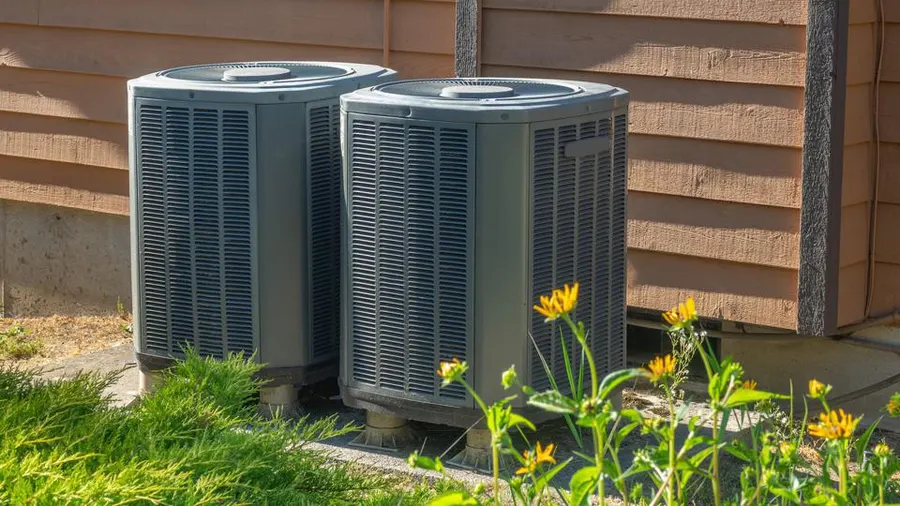Comfort is a vital consideration in every home. Ensuring that your living space is temperature-regulated, well-ventilated, and optimal for your well-being often hinges on the effectiveness of your home’s Heating, Ventilation, and Air Conditioning (HVAC) system.
An HVAC system is more than just a luxury; it’s essential to a comfortable and healthy home. The correct HVAC system can ensure a comfortable temperature, provide fresh air, and even help control humidity, making it a critical factor in your household’s comfort and health.
Understanding HVAC systems
The main purpose of an HVAC system is to maintain and regulate the interior temperature and air quality of your home. It does this by controlling the distribution of air and heat throughout your living space and removing stale air to ensure fresh, clean air circulates.
HVAC systems come in different types, including central heating and cooling systems, heat pumps, ductless mini-splits, and geothermal systems. Each class has advantages and disadvantages depending on your home’s size, climate, and energy efficiency goals.
Central heating and cooling systems
Central heating as well as cooling systems are the most prevalent type of HVAC system in most residential homes. They use a network of ducts to distribute heated or cooled air throughout your home, making them suitable for year-round temperature regulation.
These systems typically consist of a furnace that heats the air and an air conditioner that cools it. The furnace is usually powered by gas, electricity, or oil, while the air conditioner uses electricity and refrigerant to cool the air.
Heat pumps
Heat pumps work similarly to central heating and cooling systems but use a different mechanism to heat or cool your home. Instead of generating heat, they use a refrigerant to extract it from the outside air and distribute it indoors. In hot weather, they reverse this process, removing warm air from your home and releasing it outside, providing cooling.
Heat pumps are an energy-efficient option for moderate climates but may be less effective in extreme temperatures. However, they can be combined with other systems, such as a furnace or electric baseboards, to complement their heating abilities in colder climates.
Ductless mini-splits
Ductless mini-split systems are ideal for homes without ductwork or those looking for a more energy-efficient option. These efficient systems consist of an outdoor unit. This unit is connected to one or more indoor units. It allows you to control the temperature in specific rooms.
Ductless mini-splits use a heat pump mechanism to provide heating and cooling. They also offer zoning capabilities, meaning you can set different temperatures in different areas of your home, providing customizable comfort. A mini-split vs central air system comparison shows that ductless mini-splits can be a more cost-effective option for smaller living spaces and offer better energy efficiency.
Geothermal systems
Geothermal systems use the earth’s natural heat to regulate the temperature in your home. They rely on underground pipes filled with water or antifreeze that absorb heat from the ground and distribute it indoors. They reverse this process in hot weather, releasing heat into the ground.
While geothermal systems can be costly to install, they are incredibly energy-efficient and offer long-term savings on utility bills. They also have a longer lifespan than traditional HVAC systems and require less maintenance.
Choosing the right system for your home
Several factors come into play when selecting an HVAC system for your home. These include the size of your living space, climate, budget, and energy efficiency goals. It’s vital to consult with a professional HVAC contractor who can correctly assess your needs and recommend the best system for your home.
An HVAC contractor can help you purchase the correct size system for your home. A system that is too small will need more support to keep up with demand, leading to higher-than-necessary energy bills. On the other hand, an oversized system may cycle on and off frequently, which may cause wear and tear on the equipment and potentially lead to costly repairs.
Additionally, consider the energy efficiency of your chosen system. Look for systems with an exceptionally high Seasonal Energy Efficiency Ratio (SEER) or Annual Fuel Utilization Efficiency (AFUE) rating, as these can significantly impact your utility bills in the long run.
Maintaining your HVAC system
Proper maintenance is crucial for your HVAC system’s optimal performance and longevity. Here are some tips to keep in mind:
Regularly change air filters
Air filters should be changed every one to three months, depending on usage. Clogged filters can restrict airflow, reducing efficiency and potentially causing damage to the equipment.
Keep outdoor units clear
If you have an outdoor unit, ensure it is free from debris and vegetation, which will allow for airflow and prevent possible damage to the equipment.
Schedule professional maintenance
It’s essential to schedule annual maintenance with a licensed HVAC technician. They can check for any issues, clean and lubricate components, and ensure your system runs at its best.
With that said
Investing in a high-quality HVAC system is crucial for the comfort and well-being of your family. Understanding the different types of plans available and choosing the right one for your home can make all the difference in ensuring optimal living conditions. Remember to consult with a professional, maintain your system regularly, and prioritize energy efficiency to enjoy a comfortable and healthy home for years. Take the time to research and choose the best HVAC system for your home today.

Leave a Reply